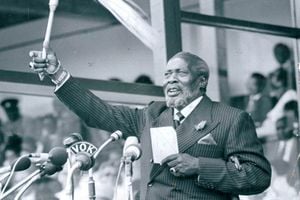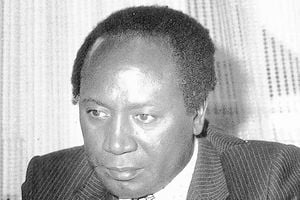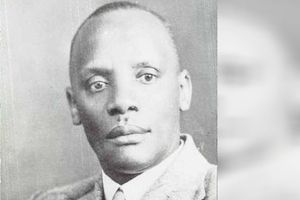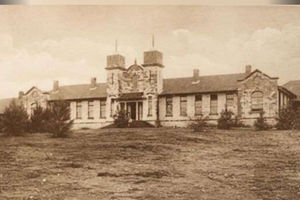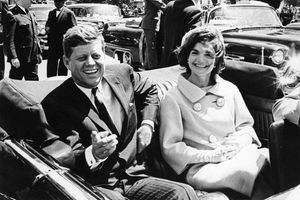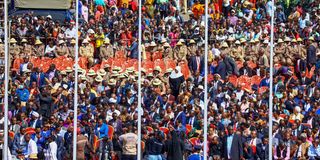
On Jamhuri Day, 1963, we ceased to be a British colony and emerged as an African republic.
Notwithstanding that we had waged a bitter and bloody struggle to overthrow a diabolical regime whose brutality, rapacity and flagrant impunity remains difficult to compass even now, our impatience did not translate into a commensurately radical disruption of the governing apparatus.
On the contrary, the new republic was ultimately born of a painstakingly negotiated and patiently crafted constitutional system which underpinned the state.
From the beginning, therefore, the foundations of our statehood bore two distinct dispositions, defined by differing strategic approaches to the freedom struggle.
One favoured the violent annihilation of all manifestations of a regime that had traumatised millions of Africans across generations through expropriation, enslavement, torture and gratuitous humiliation at every turn.
The other saw opportunity for an astutely packaged transition to majority rule which created initial conditions for more ambitious expressions of African sovereignty.
To the former, a totally demolished colonial state was the strategic vision, and, ipso facto, the erasure of all its institutions constituted its mission in order to establish the tabula rasa upon which new institutional articles of an African republic would be inscribed.
In the end, the radical militants and constitutional progressives constituted indispensable and complementary elements of the freedom struggle, with one giving confidence to the international community that we were not purchasing a one-way ticket to pandemonium by way of a handbasket, and the other exerting leverage to keep colonists acutely aware that their stay here had become untenable.
Ever since, national discourse has been prosecuted primarily on these two cardinal tracks, with the most consequential debates and controversies, from ‘homeguards’ versus mau mau, chiefs versus labourers, traditionalists versus modernists, and so forth, hewing to this fundamental dichotomy.
Arguably, these diametrical impulses are the unacknowledged ideological frameworks by which we organise and prosecute our politics.
Consequently, our progress, which rarely seems so at first blush - given that most activity resembles the Sisyphean tedium, with its interminable labour in random directions for indeterminate outcomes - is ultimately the product of implicit negotiation, or at least acknowledgment of an alternative proposition that is impossible to ignore.
Whilst the progressive constitutionalists succeeded in taking over the state at the expense of the militants, marginalising or even dominating them has not been possible and whenever attempted, the country has convulsed in an aggressive fever.
The Settlement Fund and Africanisation strategies are salient and thoroughly imperfect state responses to demands for sovereignty to translate into material benefits for the majority.
There have been movements in the former White Highlands agitating for the restitution of local populations to their stolen lands.
Such campaigns have not been short of contradictions and surprises: when victims of colonial tyranny sued the British government for compensation, the latter responded that at independence, we assumed all the instruments, authority and responsibility of the state which committed the atrocities.
According to this (mis)understanding, the Colony of Kenya became the Republic of Kenya and the freedom fighters basically assumed responsibility for the displacement, forced labour, confinement in concentration camps, torture, murder and all the evil that passed during the State of Emergency.
By extension, it is argued that the Government of Kenya declared the state of emergency under which colonial authorities conferred upon themselves permission to be utterly atrocious.
The fact that such arguments can be propounded publicly underscores the urgency of a decolonising imperative. Dr Willy Mutunga, the former Chief Justice, has been indefatigable in his advocacy for total expungement of coloniality in our Republic, and sees the constitution of Kenya 2010 as our roadmap in actualising this agenda.
From this perspective, the referendum may be considered in metaphysical terms, as a sacred moment of atonement and the renewal of our political covenant, to make our sovereignty true in word and deed.
The existence of pessimistic movements in our country, and persons who regret that we attained sovereignty too soon, and those who champion the preservation of colonial status quo reminds us that the constitutional progressives may have spawned a delirious fringe hopelessly addled with rancid self-loathing, who believe that colonialism was the best thing that ever happened to Kenya.
It should not be surprising then, that these political idolators think, and publicly proclaim that the colonial governor’s mansion may be renamed State House, but must otherwise endure in the form and character of the site from which all our humiliations proceeded: where our ancestors were made strangers in their own land, where the state of emergency was proclaimed, and the warrant to execute Dedan Kimathi endorsed.
It may seem that necessary functional refurbishments are both necessary and reasonable, but the apostles of neocolonialism will have none of it. In fact, they are beside themselves with outrage at what they see as the desecration of the distinctive emblems of uniquely colonial edifices.
The sophomoric preoccupation with neoclassical architecture is a veil for neocolonial self-indulgence and fanatical adoration of the colonial legacy.
The writer is the Secretary, Policy Messaging and Speechwriting, The Presidency

